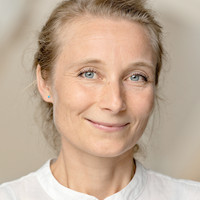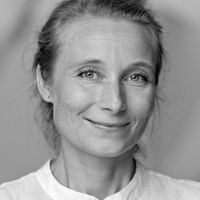Playwriting
The bachelor's programme in Playwriting teaches you how to write dramas and theatre scripts.
Through the programme, you will learn the dramatic craft, strengthen your dramaturgical awareness and creativity, and develop your personal narrative voice. You will learn to translate your interest in - and empathy for - people, situations, challenges and the world around you into dramatic stories for the stage.
It's a practical, artistic programme that focuses on all phases of the process of writing new plays; from idea development, research and planning to feedback and rewriting to rehearsals and adaptation.
A very large part of your teaching and study time is dedicated to training the disciplines of the dramatic craft including character construction, plot, structure, scene composition, speech and dramatic dialogue, language, style and genre. You must be passionate about learning the craft through writing exercises, reading plays and attending performances.
Creating and staging a performance is a collective process, and the programme therefore places great emphasis on co-creation and the interdisciplinary study environment with the acting programme in Aarhus. You learn about different types of collaboration in joint artistic processes and gain insight into the role of the playwright in the different phases of a performing arts production.
During the programme, several of your works will be presented to an audience either as readings or staged performances.
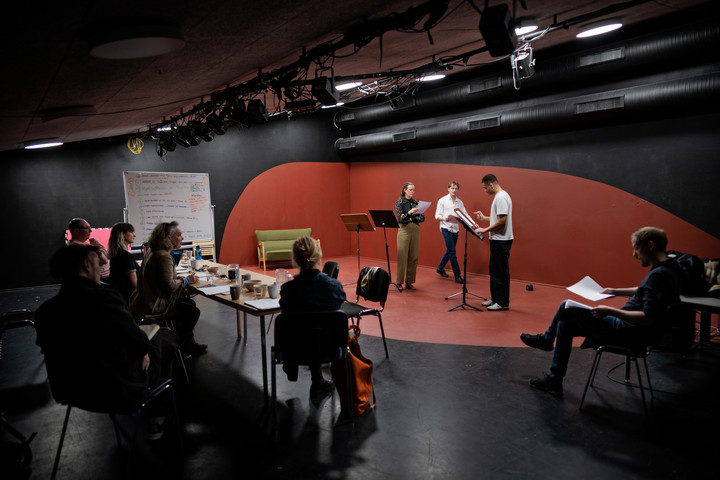
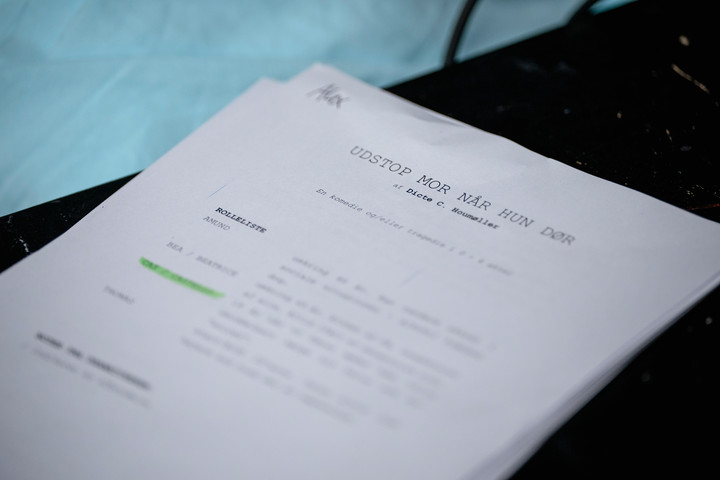
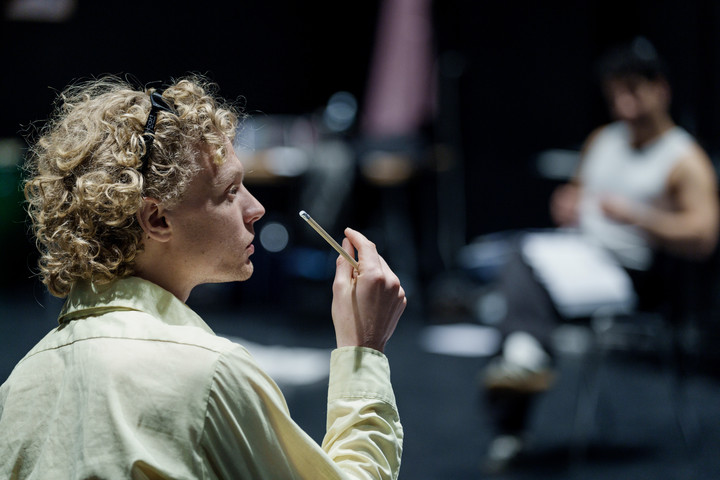
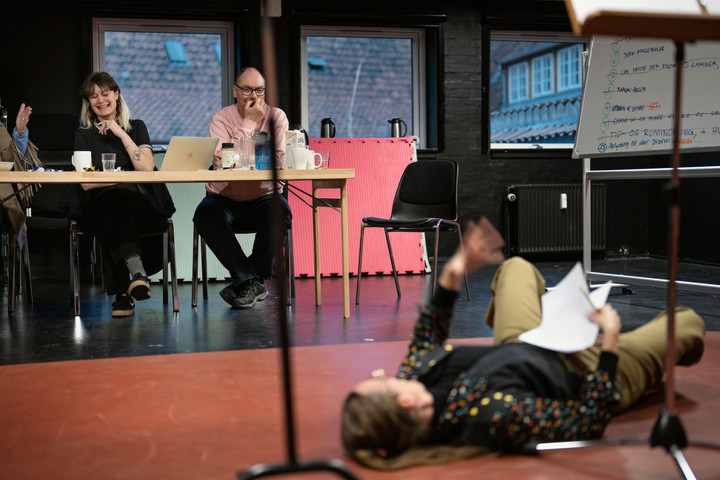
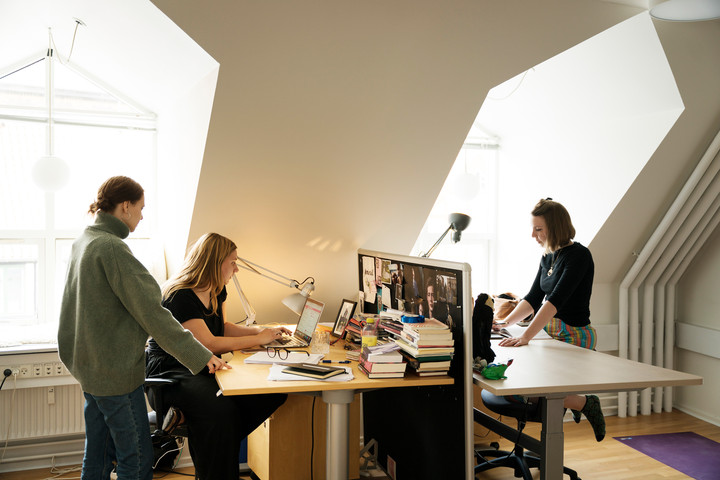
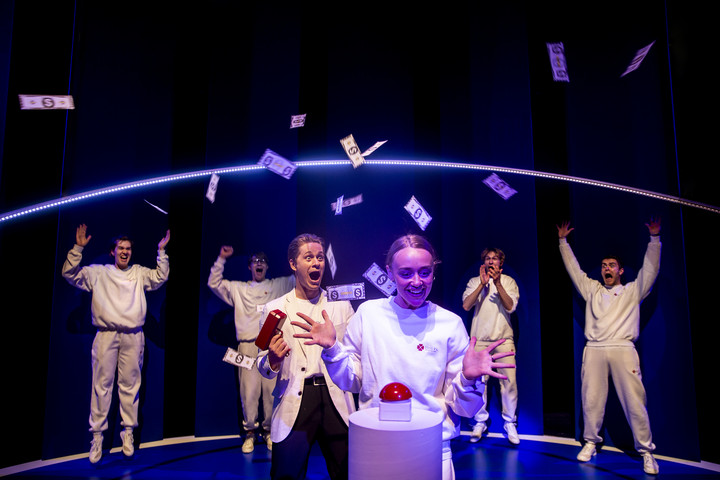
programme structure
Playwriting is a three-year full-time programme. Attendance is mandatory, and participation is essential for learning the techniques, concepts, and ways of thinking involved in the craft of playwriting.
‘Playwriting: Technical Training’ is a cross-curricular subject throughout all three years where you practice basic techniques for writing plot- and character-driven drama and understanding dramaturgy through shorter and longer writing exercises and through reading and analysing different works.
In the subject ‘Playwriting: Creative Training’, which is taught in the first two years of the programme, you will be introduced to various creative and artistic approaches to creating text both individually and through co-creative processes, including collaboration with students from other programmes at the school.
The technical and creative training is supported by subjects such as entrepreneurship, work reading and theatre history.
STUDY FORM AND STUDY ENVIRONMENT
Through teaching sessions and projects, you will develop methodological awareness and learn to structure your work processes.
The schedule varies from week to week. There will be more classes with presentations, writing exercises, text analysis and feedback in some periods, and more independent work with supervision in others. The programme also includes courses where you collaborate with directors, actors and others to develop new material and test/adjust your work.
During the programme, you learn to enter into a professional performing arts production process by working with scripts from idea to theatrical realisation. Several courses in the programme culminate in a performance.
The head of programme teaches in the programme and is your overall supervisor. You will also meet a number of external teachers and consultants specialised in their respective fields and often active in the performing arts industry themselves.
There are no exams on the programme, but at the end of each semester, the head of programme conducts an interview with you to discuss your professional development and well-being on the school.
To learn the dramatic craft, you are expected to take responsibility for your own learning and training by, among other things, reading as much drama as you can and seeing as many performances as you can.
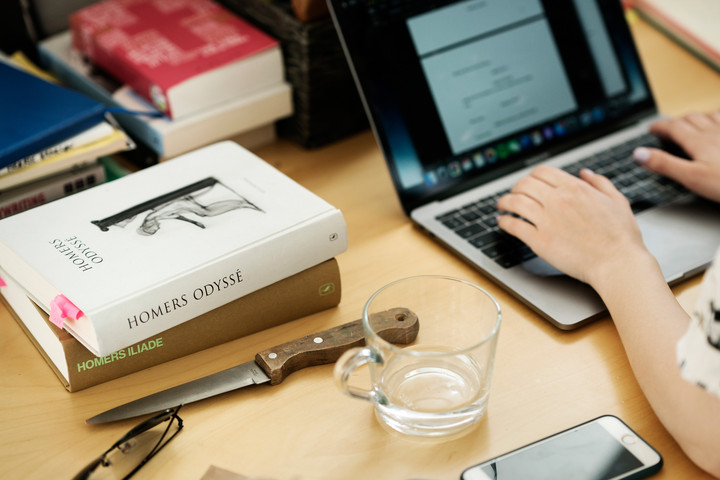
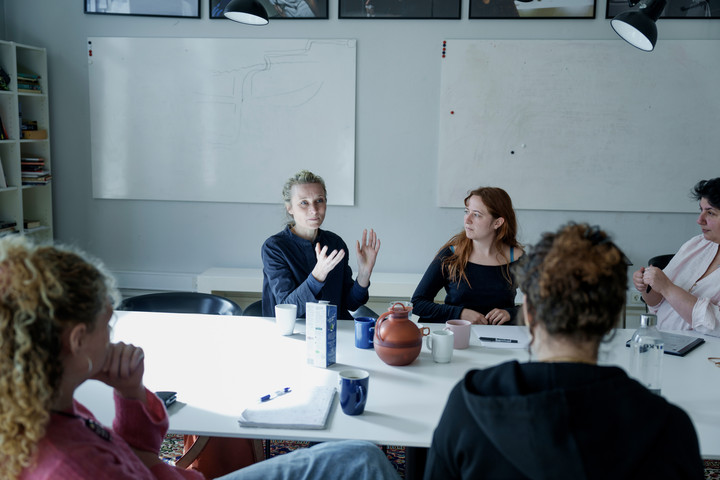
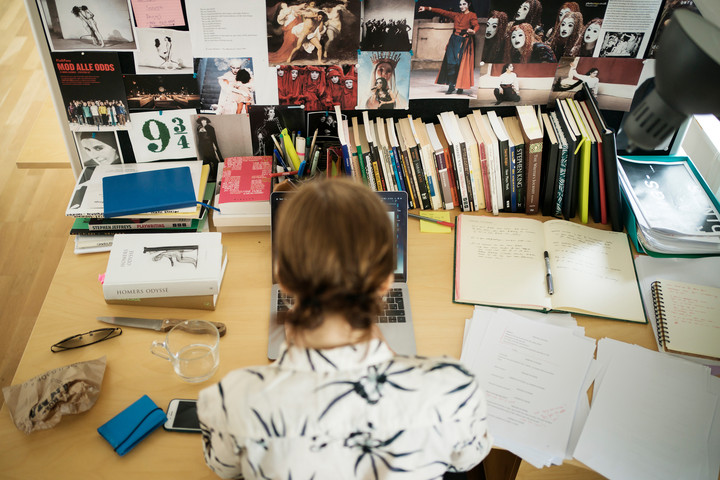
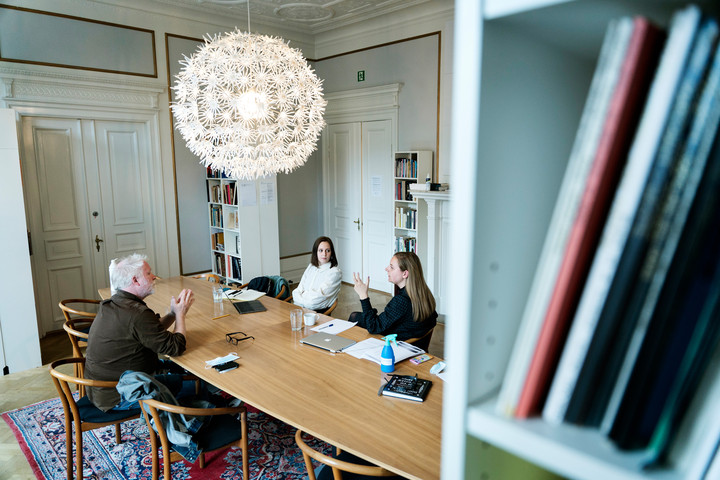
The three years I spent studying Playwriting were the most important years of my life. I was seen and challenged in ways I could never have imagined before I started. The school gives you the opportunity to dive into a three-year-long, intense immersion, to work on the tiny detail of your craft, to become aware of your own creative practice, to let go of performance anxiety and to cultivate the joy of writing. As well as the professional community at the school, you will meet really exciting artists and teachers and work on collaborations with other schools and artistic institutions. The department in Aarhus is a very loving and inclusive community, too, which makes it very nice to be part of. It's not all easy – in fact lots of it is incredibly difficult, but that's what makes it so good.
– Josephine Olhoff-Jakobsen (student 2018–2021)
Playwriting has given me peace and time to work out what I like, what my tastes are, what topics interest me and what I want to write about. The programme has given me knowledge about the performing arts and drama which I constantly use in my work. The school also provides a very special social space where you are constantly inspiring and improving each other, creatively, collaboratively and artistically.
– Johanne Petrine Reynberg (student 2018–2021)
CAREER AND WORKING LIFE
There is currently broad interest in new Danish playwriting – at large established theatres, on smaller stages and at independent companies. Dramatic writing for auditory media is also a growing genre. As a playwright, you will therefore have a wide range of opportunities to work in your field. Most screenwriters and playwrights work freelance and are hired for specific productions. But you can also become associated with a theatre as an in-house playwright for a period of time.
ADMISSION
Two students are admitted each year. Note that the application deadline is typically in December of the year before the start of the course.
All students are admitted on the basis of an entrance exam in which an admission committee assesses applicants' suitability based on set criteria.
The conditions and audition criteria apply to Danish as well as international Full Degree students.
